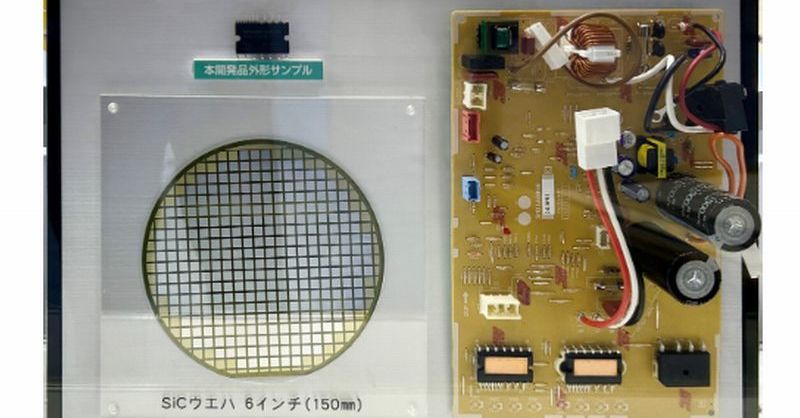Advanced IPM: SiC Improves Air Con Efficiency
The global push for energy efficiency is driving innovation across industries, and the air conditioning sector is no exception. Traditional air conditioners are notorious energy guzzlers, contributing significantly to carbon emissions. However, a revolutionary advancement using Silicon Carbide (SiC) power modules is poised to dramatically improve the efficiency of air conditioning systems, ushering in a new era of energy-conscious cooling. This article delves into the exciting possibilities of Advanced Intelligent Power Management (IPM) systems incorporating SiC, and how this technology is transforming the HVAC industry.
What is Silicon Carbide (SiC) and why is it important for Air Conditioning?
Silicon Carbide is a wide-bandgap semiconductor material offering significant advantages over traditional silicon (Si) in power electronics. Its superior properties translate to higher efficiency, smaller size, and greater durability in power conversion applications. For air conditioners, these benefits are game-changing.
- Higher Efficiency: SiC's lower switching losses lead to significantly reduced energy consumption compared to silicon-based inverters commonly used in air conditioners. This translates directly to lower electricity bills for consumers and a smaller carbon footprint.
- Smaller Size and Weight: SiC modules are more compact than their silicon counterparts, allowing for smaller and lighter air conditioning units. This is particularly advantageous in space-constrained environments and for portable AC units.
- Improved Reliability and Durability: SiC's higher operating temperature and voltage capabilities result in enhanced reliability and a longer lifespan for the air conditioning system. This reduces maintenance costs and extends the product's lifecycle.
- Enhanced Power Density: SiC's ability to handle higher power densities allows for more compact and powerful air conditioning systems, crucial for large-scale applications.
Advanced Intelligent Power Management (IPM) with SiC
The integration of SiC into Advanced IPM systems is key to realizing these efficiency gains. IPM systems constantly monitor and optimize the operation of the air conditioner, adjusting power delivery in real-time to maximize efficiency and minimize energy waste. Combined with SiC's inherent advantages, this results in a highly optimized and energy-efficient cooling solution.
The Environmental Impact of SiC-based Air Conditioners
The environmental benefits of widespread adoption of SiC-based air conditioners are substantial:
- Reduced Greenhouse Gas Emissions: Lower energy consumption directly translates to reduced greenhouse gas emissions, contributing to mitigating climate change.
- Decreased Energy Demand: Increased efficiency reduces the overall energy demand on power grids, relieving pressure on energy infrastructure.
- Improved Sustainability: SiC-based ACs contribute to a more sustainable future by promoting energy efficiency and reducing environmental impact.
The Future of Air Conditioning: SiC's Growing Role
The adoption of SiC technology in air conditioners is still relatively nascent, but its potential is undeniable. As manufacturing costs decrease and the technology matures, we can expect to see a wider adoption of SiC-based air conditioners across residential, commercial, and industrial applications. This shift will significantly contribute to global efforts to curb carbon emissions and promote sustainable living.
Further Research and Development
Ongoing research and development efforts are focused on further improving the efficiency, cost-effectiveness, and reliability of SiC-based power modules for air conditioning systems. This includes exploring innovative packaging technologies and optimizing control algorithms for even greater energy savings.
Conclusion: A Cool Revolution
The integration of SiC into Advanced IPM systems represents a significant leap forward in air conditioning technology. By leveraging the superior properties of SiC, manufacturers can create significantly more efficient, reliable, and environmentally friendly air conditioners. This "cool revolution" promises to deliver substantial benefits for both consumers and the planet. The future of air conditioning is undeniably greener, thanks to innovations like SiC.
Keywords: SiC, Silicon Carbide, Air Conditioning, Efficiency, IPM, Intelligent Power Management, Energy Efficiency, HVAC, Sustainable Technology, Greenhouse Gas Emissions, Power Electronics, Semiconductor, Wide-Bandgap Semiconductor
(Optional CTA): Learn more about the latest advancements in energy-efficient cooling technologies by subscribing to our newsletter!
